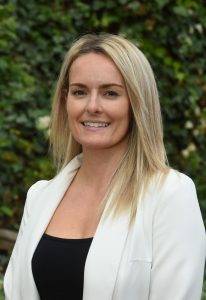A personal pension fund is an important and valuable asset, but the value of the pension fund can stretch beyond your lifetime, once you have passed away and provide funds to your loved ones.
Below, we’ll consider:
- What happens to your pension fund after you died;
- How pension death benefits operate; and
- The importance of a nomination/expression of wishes.
What happens to my private pension fund after I have died?
The administrators or trustees of your pension scheme will typically decide which beneficiaries will financially benefit from your pension unless you have made a nomination/expression of wishes.
Personal pension funds are typically defined as being defined contribution or money purchase schemes, and are taxed depending on your age when you pass away:
- If you die before the age of 75 – All benefits from a defined contribution scheme can normally be paid tax-free.
- If death occurs after the age of 75 – Benefits are taxed as the recipient’s income and therefore their tax rate. However, the important rule to remember is they are only taxed when and if benefits are taken out of the pension.
There may be other areas to consider, such as the lifetime allowance (LTA) but let’s assume for now the value of the pension fund falls within the available LTA.
The importance of a nomination form
It is advisable for members to complete a nomination form (or a letter of wishes) which allows you, as the pension scheme member, to tell the trustees/administrators who you would like to benefit on your death. It is very important that you check that you have completed a death benefit nomination form and that it’s reviewed and checked on a regular basis, in case your circumstances, family dynamics or wishes change.
Death benefit nomination forms provide the trustees of your pension, guidance as to who benefits should be paid to but it is still at their discretion. This discretionary power protects the death benefits from Inheritance Tax.
Nominations are also important because without one:
- A member can nominate any individual to inherit their drawdown pot, whereas if no nomination is in place, then the trustees can only pay benefits to a dependent if there is one.
- If there is no surviving dependent, then benefits can then go to any individual but only in the form of a lump sum, not by a drawdown pot.
- If payment is by a lump sum, the lump sum then falls into the recipient’s estate for Inheritance Tax and if reinvested elsewhere may not be as tax efficient as an inherited drawdown pot, for both Income Tax purposes and Inheritance Tax purposes.
Let’s run through an example
- Dad dies at age 72 and has nominated to leave all his pension benefits to his spouse. As he died before age 75, any withdrawals can be paid tax-free to his spouse.
- Mum then dies at age 79 and has only used a small portion of the pension pot. On her death, she nominated her son and daughter to receive the inherited drawdown plan. But as she died after age 75, any withdrawals taken by the children are now taxed at their marginal rate.
An alternative option had the Dad reviewed the nomination form, with financial advice may have been the following:
- Let’s assume Mum is unlikely to need the entire fund over her lifetime.
- Therefore Dad could have instead nominated to leave 50% to his spouse and then 25% each to his son and daughter.
The outcome is that as Dad died before age 75, Mum still receives half the pension – which she can access tax-free in the future if needed. And the other half of Dad’s pension now passes to the children tax-free. Whereas before, the children would have to wait until Mum passed away and then assuming she dies after age 75 would have been taxable.
Summary
To summarise, there are a few areas to consider for those who have pensions:
- Do you have the right pension – are they modern flexible pensions?
- Does the pension have all the death benefit flexibility your family needs?
- Should you consider consolidating older pensions if they don’t?
- Is the nomination correct, or does it need reviewing?
- Are non-dependents named so they can receive an inherited drawdown plan, instead of receiving the entire lump sum?
If you were to pass away, whilst in the wrong pension or with the wrong nomination, it may mean your wishes cannot be met. In the same way, people delay writing their Will – it’s also important to not delay a review of your pensions too.
 How we can help
How we can help
Zoe Till is a Partner and Chartered Financial Planner in our expert Independent financial advisers team. Zoe’s areas of expertise include investment advice, retirement planning, IHT and lifetime cash flow modelling.
If you would like any advice in relation to pension death benefits, nomination forms or any related subjects, please get in touch with Zoe or another member of the team in Derby, Leicester or Nottingham on 0800 024 1976 or via our online form.
Contact us
If this article relates to a specific case/cases, please note that the facts of this case/cases are correct at the time of writing.


